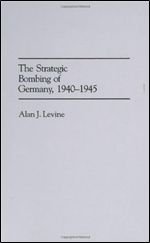On August 15,1975, Mujib and most of his family were assassinated by pro-Pakistani army officers. After a series of coups, General Zia ur-Rahman ascended to power in November. He pledged military support to a civilian government headed by Chief Justice Abu Sadat Mohammed Sayem, who named himself chief martial law administrator. Zia ur-Rahman was elected for a five-year presidential term in 1978.
Rahman immediately removed the remaining restrictions on political parties and encouraged opposition groups to participate in coming parliamentary actions. More than thirty parties competed in the parliamentary elections of February, 1979, but Rahman's Bangladesh Nationalist Party (BNP) won 207 of the 300 elected seats.
On May 30,1981, Zia ur-Rahman was assassinated by radical military officers, and civilian vice president justice Abdus Sattar was sworn in as acting president. He declared a national emergency and called for a new election within six months. Sattar was elected president in a nationwide election but was sickly and ineffective.
On March 24,1982, Lieutenant General Hussein Mohammed Ershad assumed control in a bloodless coup and, in similar fashion to his predecessors, declared martial law and assumed the position of chief martial law administrator. He prohibited all political activity by dissolving parliament and suspending the constitution. Ershad then began consulting other nations, seeking a
Formula for government that would reduce the ongoing threats against public order.
In an attempt to legitimize his authority, Ershad called for elections and assumed the presidency in December, 1983. The Jatiyo Party, also called the People's Party, was instituted as Ershad's political vehicle for the transition from martial law. Full political rights, including the right to hold public rallies, were restored on January 1,1986. Ershad assumed the presidency after winning 84 percent of the vote in an October, 1986, election.
In July, 1987, the opposition parties united for the first time against government policies, and Ershad declared a state of emergency in November. Parliament was again dissolved in December, and new parliamentary elections were scheduled for March, 1988. With the major opposition parties refusing to participate, Ershad's party won 251 of the 300 seats. Independent candidates and three minor political parties that did participate shared the remaining seats. This parliament later passed a hotly contested amendment that made Islam the official state religion.




 World History
World History









